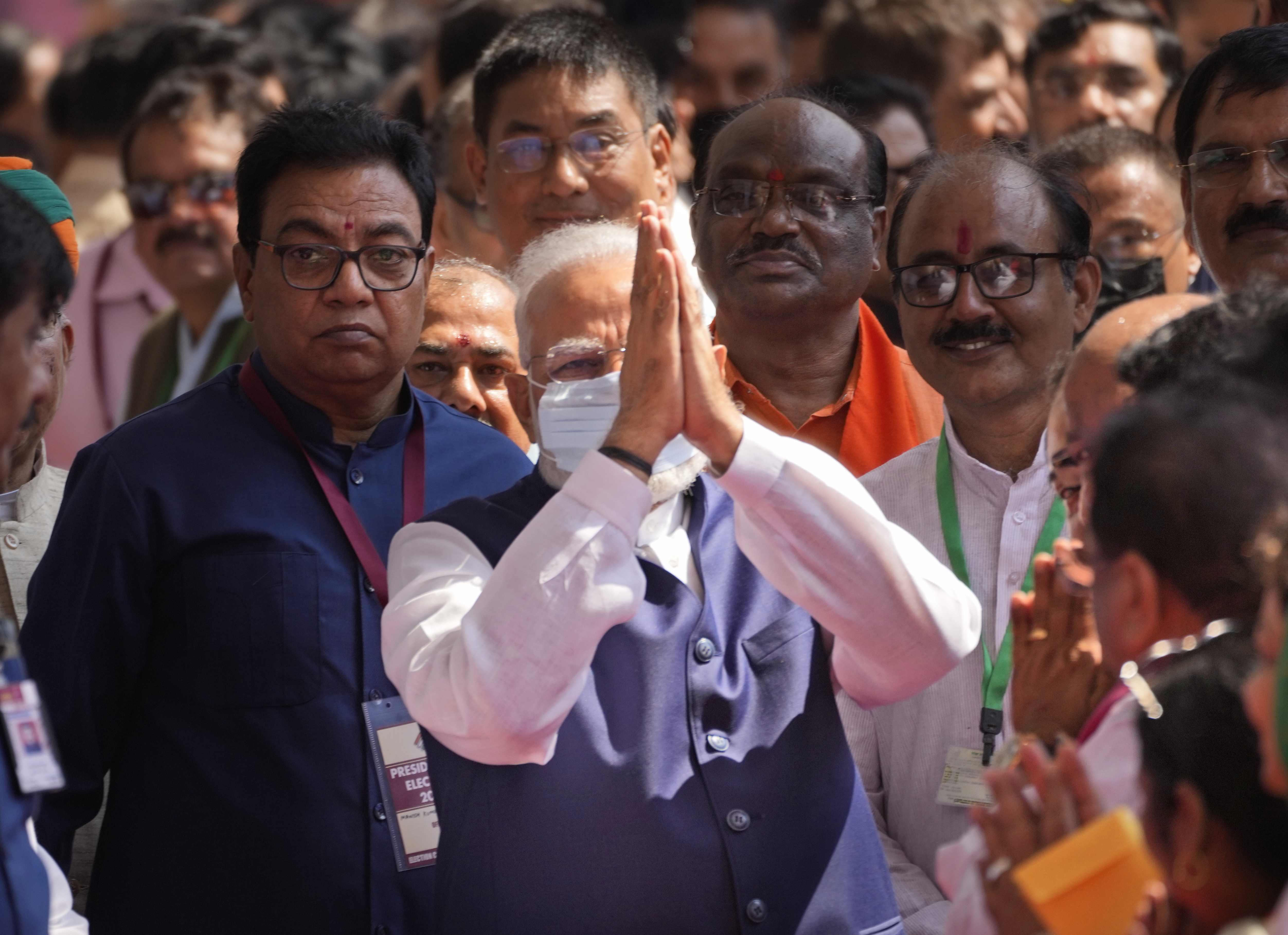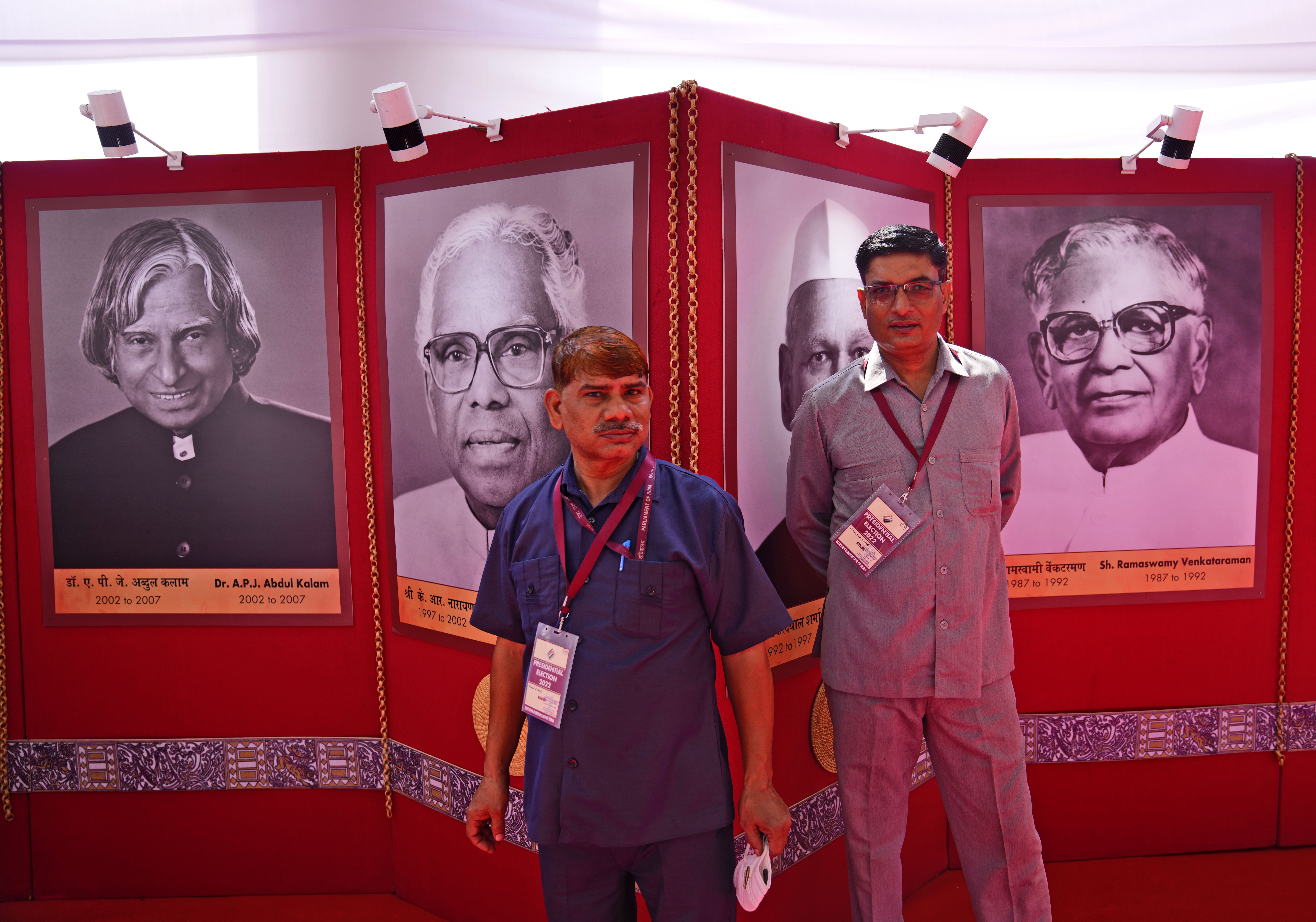
Indian legislators are voting to choose the country’s next president in an election expected to be won by a tribal woman from the ruling Bharatiya Janata Party (BJP).
The election of Droupadi Murmu is a formality as Prime Minister Narendra Modi’s BJP controls enough seats in federal and state legislatures to push its favoured candidate.
Murmu, 64, from the Santhal tribe is also likely to get the support of other regional parties in state assemblies.
If elected, she will become the first tribal president and the second female president of India.

The incumbent, Ram Nath Kovind, is the country’s second president from the marginalised Dalit community, which is at the lowest end of the complex caste hierarchy in India, Pakistan and Bangladesh.
Kovind, 76, is also a longtime associate of the Rashtriya Swayamsevak Sangh (National Volunteer Corps), a far-right Hindu nationalist group that has long been accused of stoking religious hatred against Muslims. He has been president since 2017.
Modi’s party has projected Murmu as a leader representing poor tribal communities, which generally lack healthcare and education facilities in remote villages.
Murmu began her career as a teacher in the eastern state of Odisha before going into politics. She has held ministerial positions in the state government, and been governor of the neighbouring state of Jharkhand.

Murmu “has devoted her life to serving society and empowering the poor, downtrodden as well as the marginalised,” Modi tweeted after her candidacy was announced last month.
Her main opponent for the presidency is veteran politician and BJP rebel Yashwant Sinha, former finance and external affairs minister who has been backed by a divided opposition.
Sinha, 84, quit the BJP following a divergence with Modi on economic issues in 2018.
Now a vocal critic of Modi’s government, Sinha tweeted during the weekend: “This year the presidential election is not a contest between two individuals but two ideologies.
“Only one side wants to protect the provisions and values enshrined in our constitution.”

The votes from Monday’s election will be counted on Thursday.
India’s president is chosen by nearly 5,000 elected members of houses of parliament and regional legislatures across the country.
Each of their votes is weighted according to the size of their constituency, and they rank the candidates in order of preference.
If no-one has more than 50 percent support, the lowest-scoring candidate is eliminated and their votes redistributed until someone reaches the mark.
India’s prime minister wields executive power and the president’s role is largely ceremonial.
But the position can be important during times of political uncertainty such as a hung parliament, when the office assumes greater power. The president plays a guiding role in the process of forming governments.
The president can also send back a few parliamentary bills for reconsideration by the legislators.







